
Hi, I’m a personal finance expert who loves to help you out! I’ll answer your question within a business day. Pinky swear.

Credit card fraud – like everything else in life – changes with the times. Even as we introduce new methods to combat fraud, there are those who will find ways to get around them. So, how afraid should you be?
Phew, time to relax then. Perhaps not. What if you happen to make up that 0.1%? While that teeny-tiny figure may look insubstantial, it’s unlikely to seem insubstantial when it’s your money that’s mysteriously gone missing.
Luckily, there are ways to reduce your chances of becoming a victim of credit card fraud. While credit card providers are fighting the good fight to make our cards safer, you can do your bit by following these credit card security tips.
Keep your details private
Both your card details and your PIN should be kept private. Don’t let anyone see your card when you’re out in public, don’t give your card number out over the phone, and don’t post a photo of your card on social media (sounds obvious, and yet…).
When it comes to bank statements and anything else that has your personal or financial details on it, make sure to shred them before throwing them out. While we’re on the subject of mail, put a lock on your mailbox to avoid anyone stealing anything out of it.
Be wary at the ATM
Always pay attention when using an ATM. Look out for anyone hanging around nearby, and check the ATM itself for any signs of skimmers, cameras or anything else that shouldn’t be there. Shield your PIN and don’t accept help from anyone. If in doubt, move onto the next ATM, go into a branch, or use the cash-out facilities next time you’re at the checkout.
Don’t lose sight of your card
While it’s nice to be nice, it’s not smart to trust everybody. Would you give someone a pile of your cash to walk away with? Because that’s exactly what you’re doing when you hand over your card. Always know where your card is – don’t hand it over to keep behind the bar, and don’t let anyone take it away to process a transaction.
Protect your digital self

Getting hacked is just plain inconvenient. So, what can you do to protect yourself? Always keep the antivirus and security software on your computers and mobile devices updated, and avoid downloading programs or files from unknown places. It’s also a good idea to avoid public computers and open Wi-Fi networks, as these can be easily hacked.
Be cautious when buying online
Shopping online can provide access to a whole world of new and exciting things. But, if you shop in the wrong place, it could give thieves all they need to steal your personal details. Before you pay, check for ‘https’ in the merchant’s web address, look closely to see if anything looks fishy, and consider only shopping at retailers that you know and trust.
If you’re thinking about saving your credit card number on a retailer’s website, just don’t. While it may make checkout super easy, it also makes your details super easy to steal if that retailer is hacked.
Watch out for phishing scams
Think you’re too smart to fall for a phishing scam? Thieves are getting pretty smart too these days. Just remember, no legitimate business, charity or organisation will ever phone you, text you or email asking you to provide or ‘update’ your personal or financial details.
If you’re unsure, search for the organisation’s contact details independently – don’t use the details they provide you or click on any links – and contact them directly to ask if there is a problem.
Keep a close eye on your account
Tedious, yes. Essential, also yes. Take time to review your account by checking your transactions and following up on any you don’t recognise. Most banks and card providers make this easy using their app or online banking. If it turns out to be fraud, your provider will launch an investigation.
It’s also a good idea to check your credit history regularly. If someone has stolen your details to apply for credit cards in your name, your credit file might be the first you see of it.
Let tech do its job
In the war against credit card fraud, tech is continually being improved to make credit card use safer. Why? First up, tech is smarter that your average human, so it tends to be better at sniffing out fraud as – or before – it happens.
Secondly, tech can be used to bypass humans and their unreliable behaviour. While a human in a call centre has to be trusted to keep things on the up-and-up, a chatbot, for example, does not. Chatbots can provide an awesome alternative in the retail and financial sphere, taking humans right out of the equation, to process card details for payments safely and efficiently.
1. https://www.auspaynet.com.au/sites/default/files/2019-08/AustralianPaymentCardFraud2019_0.pdf
Photo source: Shutterstock, Getty Images

Pauline Hatch
Pauline is a personal finance expert at CreditCard.com.au, with 9 years in money, budgeting and property reporting under her belt. Pauline is passionate about seeing Aussies win by making their money – and their credit cards – work smarter, harder and bigger.
You might be interested in
Recently Asked Questions
Something you need to know about this card? Ask our credit card expert a question.
Ask a question
Hi, I’m a personal finance expert who loves to help you out! I’ll answer your question within a business day. Pinky swear.




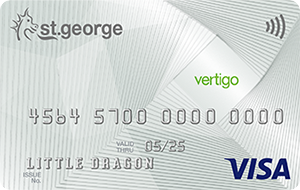
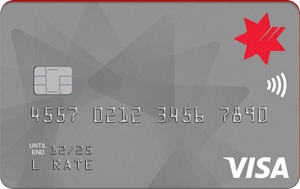
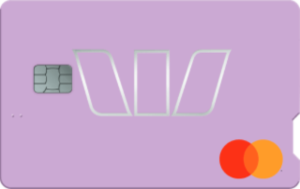
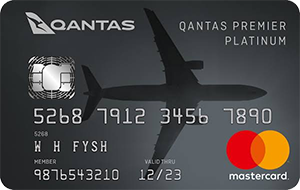
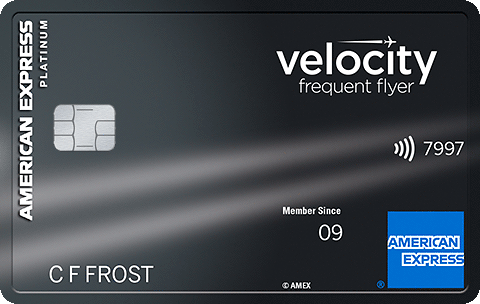
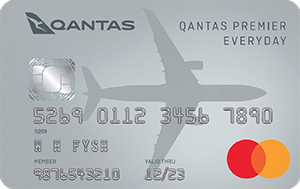







How Robotic Process Automation (RPA) is Taking over in Banks - SavingAdvice.com Blog
12 October 2019Les entreprises de technologie qui évoluent rapidement à suivre dès maintenant - Newstrail
16 September 20194 fast-moving lesser-known tech companies setting trends right now
13 September 2019Fast-moving tech companies to watch right now - Investing Alerts
13 September 2019